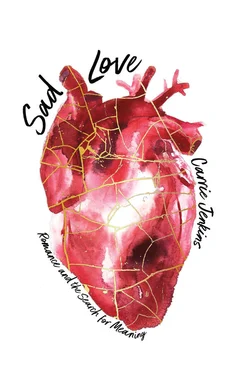6 6. Thi Nguyen offers an excellent description of this phenomenon in “Gamification and value capture,” chapter 9 of his new book Games: Agency as Art (Oxford: Oxford University Press, 2020).
7 7. Recent work on this phenomenon includes Jin Kyun Lee’s “The effects of social comparison orientation on psychological well-being in social networking sites: serial mediation of perceived social support and self-esteem,” Current Psychology (2020), pp. 1–13, and Schmuck et al.’s “Looking up and feeling down: the influence of mobile social networking site use on upward social comparison, self-esteem, and well-being of adult smartphone users,” Telematics and Informatics 42 (2019), pp. 1–12.
8 8. See e.g. Charles Darwin: Voyaging, by E. Janet Brown (Princeton, NJ: Princeton University Press, 1996).
9 9. See “Newton, The Man,” by John Maynard Keynes, https://mathshistory.st-andrews.ac.uk/Extras/Keynes_Newton/.
I am immensely grateful to Jonathan Jenkins Ichikawa, Tyler Nicol, Robin Roberts, Kupcha Keitlahmuxin, Mezzo, Drusilla, and Seven, and to all the good daimons in my support network of friends and family.
For conversations, questions, and comments I am indebted to Chase Dority, Alice Maclachlan, Shannon Dea, Alan Richardson, Jasper Heaton, Jelena Markovic, Chelsea Rosenthal, Dominic Alford Duguid, Cat Prueitt, Kim Brownlee, Chris Stephens, Fatima Amijee, Keith Maillard, Ray Clark, Adriana Jones, Marian Churchland, Jessica Lampard, Alyssa Brazeau, Susan Sechrist, and Ray Hsu. Thanks also to audiences at the University of Manitoba, Simon Fraser University, and the Minorities and Philosophy Flash Talks series, who gave me comments on earlier versions of the material.
My patient editor Pascal Porcheron, and two anonymous readers for Polity, gave me substantial feedback that helped me shape the book into this final form.
Parts of the text and/or related materials appear in previously published work:
“When Love Stinks, Call a Conceptual Plumber,” in E. Vintiadis (ed.), Philosophy by Women: 23 Philosophers Reflect on Philosophy and Its Value (London: Routledge, 2020).
“Love isn’t about happiness. It’s about understanding and inspiration,” New Statesman, April 2020.
“How to ‘love-craft’ your relationships for health and happiness,” The Conversation, September 2018.
The work was completed on the traditional, unceded territories of the Musqueam, Squamish, and Tsleil-Waututh First Nations.
Tell a philosopher you love her, and you’d better be ready to define your terms.
It’s funny because it’s true. Well, sort of. Some philosophers spend their entire working lives on questions of definition or the analysis of concepts. And this is not a pathology. It’s important. Put a concept such as love under the microscope and you see how vague and fuzzy it is. How layered. Where the spiky bits are. Patterns invisible to the naked eye suddenly become fascinating objects of study.
That’s why some of us spend our whole lives trying to get a better look. Philosophy, when it’s working well, offers us a treasury of intellectual and imaginative tools: new ways of seeing things. Conceptual microscopes, of course, but also conceptual telescopes, and distorting mirrors, and tinted lenses … we need all kinds of different approaches. We need to examine our concepts close up, but we also need to get a better look at the ones that feel remote, and we need ways to look at things from new angles, through different filters. That includes the things we think we understand, the things most familiar to us. In fact, it’s especially important to examine those, as they’re often highly influential in structuring the way we live (whether or not we appreciate their playing that role). Deflecting and diffracting our most familiar images can reveal something totally new, perhaps something we would never have imagined it was possible to see.
As I suggested in my preface, this particular book is an attempt to build a conceptual mirror. I’m trying to reflect back to us an image of ourselves, and specifically of our ideas and ideals of romantic love. It’s not an entirely flattering image, the one I end up with. It’s almost grotesque. No doubt there are some distortions. But, as I said, sometimes we need a new angle, a vantage point from which the familiar looks weird.
I start from a curiosity about the real lived experience of sad love – love that defies the assumption that love stories end in “happy ever after.” Sad love in our songs and stories tends to be a failure condition: a disaster and a tragedy. But I think there is much more to it than that. The realities of sad love are a clue that we’re not seeing something properly. Something is missed because we tell only certain kinds of love stories. Sad love can’t be happy ever after, of course. But it can be something else: something that I’ll call eudaimonic (more on this word a moment). Eudaimonic love has deep connections with creativity and meaningfulness, of a kind that the search for happy ever after doesn’t and could never have.
But who is this “us” I keep talking about? Words like “us” can be sneaky. Unless we’re paying attention, “us” tends tacitly to exclude a “them.” A simple word can mask swathes of assumptions about who one is writing for , who’s included and who’s excluded, who’s normal and who’s “other.”
For the purposes of this book, “us” means me and the people in the same boat as me, as far as romantic ideology goes. It means people who were fed the same cultural soup that I was raised on, who imbibed the same “received wisdom” about what (real) romantic love is. In the broadest terms, it’s those of us who grew up with the dominant (white, patriarchal, capitalistic and colonial) culture of North America and the UK serving as our baseline world-view. That’s a vague and messy way to define an intended audience, but the vagueness is intentional. It’s the only way to capture the group I have in mind, which is itself vague. This book is about – and for – those of us who are still swimming in that soup.
Much of the soup is made of stories. And our love stories are remarkably consistent, almost as if we are just telling one story over and over. Here’s the short-form version of it:
X and Y sitting in a tree, K-I-S-S-I-N-G.
First comes love, then comes marriage,
then comes baby in a baby carriage.
We teach this story to children. We teach them very early, before they are equipped with adult critical thinking, bullshit detectors, defensive armour of the mind. We feed kids this story, this bit of cultural soup, in simple rhyming packages, and that makes it easy for them to swallow and repeat to others. They receive it over and over again in fairy tales and stories and in snatches of adult culture – romcoms, romance novels, Valentine’s Day greetings cards. And, of course, children watch grown-ups, and grown-ups model the story. We are supposed to start living out the story when we come of age, or at least do our darnedest to conform. For the children. If we cannot or will not conform, we aren’t supposed to let the children see that .
It reminds me of something Wittgenstein said about rules: we just keep going. We call that “following” the rule. But, however it might feel from the inside, we’re not really “following” anything. The way we go on is not determined by pre-existing constraints: it’s up to us. We are creating the rule by going on the way we do.
I don’t think all rules work this way, but a lot of them do. 1In particular, most of our “rules” for romantic love are created by our own choices about how to go on, individually and in social groups. By practicing love in a particular way, by representing it as being that way, we are constructing the rules and norms and expectations for what a loving relationship should look like. We teach all of this to children. We keep going, and call that “on.” It’s not only about creating the rule, it’s also about creating the “us.”
Читать дальше












